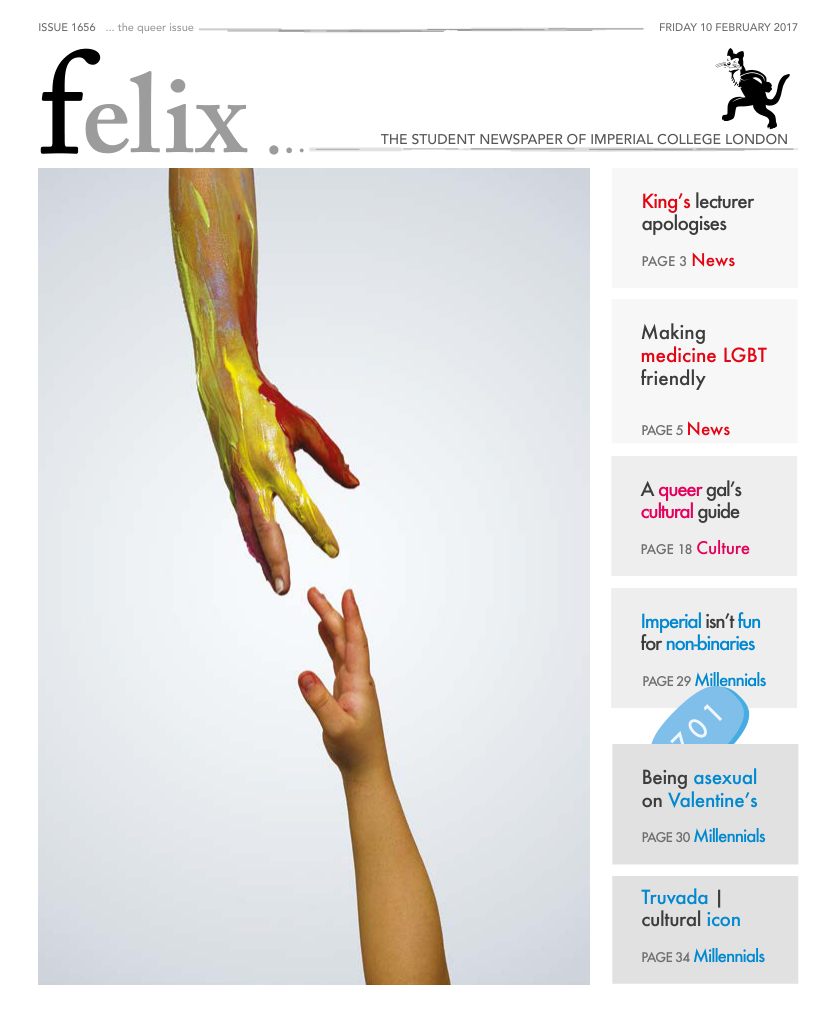We should welcome Trump
Shaul Rosten explains why banning Trump from the UK would be counterproductive and hypotricical

Two weeks ago, newly-elected President of the United States, Donald Trump, signed an Executive order suspending entry to the United States for residents of seven Muslim-majority countries, and for Syrian refugees. This was a key campaign pledge, and, although more crudely proposed as a total ban on all Muslims, he was largely ignored at the time as an egotistical idiot who had shouted his way into the Republican candidacy, and whose opinions would have little actual impact on US foreign policy. Now that he is in power, a much greater global response to the policy has formed, propelling, almost symbolically, the cause of inclusion against division.
At the time of writing, 1.3 million people have signed a petition urging this government to either postpone or cancel the State visit of Donald Trump, as the US President, to the UK. Many prominent (although inexplicably so) politicians have endorsed this call. Jeremy Corbyn stated that "Donald Trump should not be welcomed to Britain while he abuses our shared values with his shameful Muslim ban and attacks on refugees' and women's rights"
I find this rhetoric, from citizen and politician alike, an insidious example of raging liberal hypocrisy to a degree it has hardly yet seen. I have no problem with protesting a policy with which you do not agree, either at home or abroad. However, requesting disengagement entirely is an eminently stupid suggestion – we do not have a policy of ignoring people with whom we disagree, but engaging with them, raising our concerns and creating an open dialogue so as to build stronger relationships with them. This was evident amongst the liberal camp in the recent US election. Shia LaBoeuf, the famous actor, started a campaign called 'He Will Not Divide Us'. People advocated unity, talking to people from different faiths and communities to strengthen ties and unify ambitions.
Suddenly, however, when the people with different views are people without liberal views, the left-wing clamours for a total boycott of relationship, communication and engagement. This flies in the face of the 'values' so strongly and sternly proclaimed in recent years, and, by anyone's estimation, is obviously not the way forward to incubating global inclusivity and freedom. What surprises and upsets me most, however, is the sheer hypocrisy of spearhead figures on the UK left: Jeremy Corbyn shared a platform with the terrorist organisation Hezbollah, clearly a divisive group whose values do not reflect those of the UK. But how did Mr Corbyn defend his actions? He called for engagement and open conversation with those with whom we disagree, saying that he was “encouraging them to have a discussion”. In fact, the following is a direct quote from his spokesperson, speaking about his support for Hamas and Hezbollah, both internationally recognised terrorist, extremist organisations:
“[Corbyn] has met many people with whom he profoundly disagrees in order to promote peace and reconciliation processes, including in South Africa, Latin American, Ireland and the Middle East. He believes it is essential to speak to people with whom there is disagreement, particularly when they have large-scale support or democratic mandates. Simply talking to people who agree with you won’t help achieve justice or peace.” Interesting.
Sadiq Khan, Mayor of London, oddly a labour politician whom I'm somewhat supportive of, also joined the cry for a Trump ban, but he too has stood shoulder to shoulder with groups and individuals whose views make Trump look like a big orange Mother Teresa. At one such event, he shared a platform with a Hamas supporter, and a preacher who backs Islamic State. There are few whose values could be further from the British ideal. What was his defence? Again, he stressed the importance of the fact that he “engaged regularly” with those with whom he might disagree. Interesting indeed.
Putting these individuals aside, I am equally disappointed by the hypocritical attitude of the 1.3 million UK signatories. Engagement with other views and opinions is what your hatred of Trump is based on – following suit makes you, by your own estimations, as bad as him. As well as this, UK foreign policy is built on cross communication. We have open communication with Saudi Arabia, where women are banned from driving, Iran, Zimbabwe and Russia, amongst others. It is not a complex lesson to learn: ignoring problems and people does not make them go away, and discussion and engagement are the cornerstones of cooperation and inclusivity. The United Nations is emblematic of this, standing as a centre point for all nations to pool opinions, resources, and backgrounds, in a combined effort to make the world a better place.
Irrespective of your views on Donald Trump and his immigration policy, in any situation, principles are what you act by. If you truly believe in bringing together people of different faiths, backgrounds, ethnicities and – most fundamentally – opinions, then there are no grounds for a call for disengagement. Wake up.









